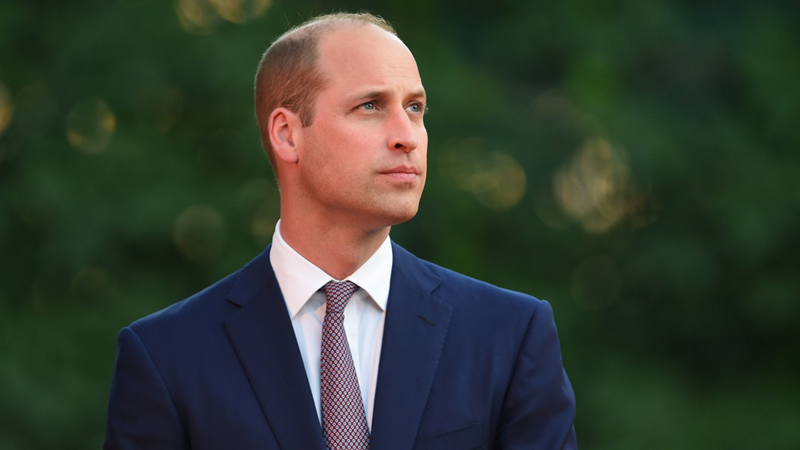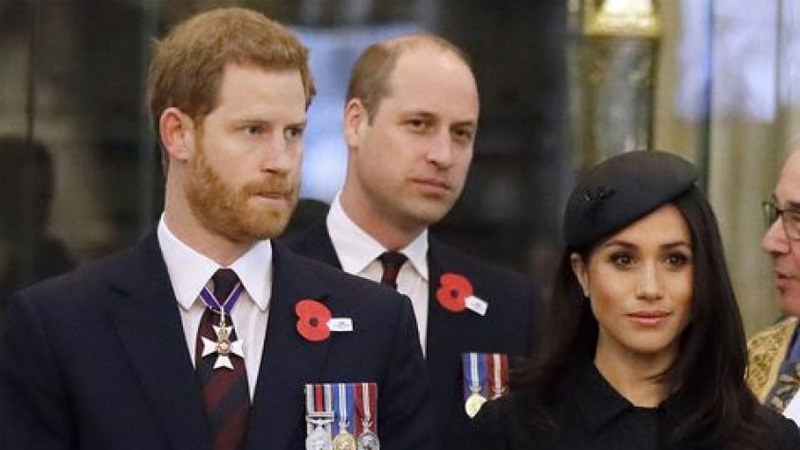Prince William Says Racism Is An ‘All Too Familiar Experience’ For Black People In Britain

(Image credit: Getty Images)
He said his controversial royal tour of the Caribbean helped him reflect on ‘how the past weighs heavily on the present’
Prince William acknowledged his and Duchess Kate‘s controversial royal tour of the Caribbean while also honoring the sacrifices of the Windrush generation and their children.
The Duke and Duchess of Cambridge celebrated Windrush Day today, a day set aside to recognize the critical contribution that Afro-Caribbean immigrants made to the UK’s post-World War II recovery.
William thanked those immigrants and their children for helping to “rebuild war-torn Britain” in a speech given at the unveiling of the National Windrush Monument.
He also talked about how he and Kate had the chance to ponder and learn while on their recent spring visit to the Caribbean, which sparked protests due to the royal family’s continued participation in colonialism.
‘When the Windrush Generation sailed from the Caribbean to rebuild war-torn Britain, they did so as British citizens, answering a plea to help our country thrive again,’ the Duke said.
‘These people didn’t have to come. They volunteered to fight for King and country—in the full knowledge that many would never make it home again.’
He added that these migrants have enriched Britain’s culture in immeasurable ways. ‘This is something that resonated with Catherine and me after our visit to the Caribbean earlier this year,’ he said.
‘Our trip was an opportunity to reflect, and we learned so much. Not just about the different issues that matter most to the people of the region, but also how the past weighs heavily on the present.’
He continued by talking about the unequal treatment Black people receive in Britain, notably the Windrush crisis, which saw a number of legal Caribbean residents wrongfully detained or deported by the British authorities.

‘Sadly, that is also the case for members of the Windrush generation who were victims of racism when they arrived here, and discrimination remains an all too familiar experience for Black men and women in Britain in 2022,’ William continued.
‘Only a matter of years ago, tens of thousands of that generation were profoundly wronged by the Windrush scandal. That rightly reverberates throughout the Caribbean community here in the U.K. as well as many in the Caribbean nations.’
He added, ‘Diversity is what makes us strong, and it is what reflects the modern, outward-looking values that are so important to our country.’
Read the full speech below.
Thank you for inviting Catherine and me. It is a privilege to be here with you all.
Today is a day we celebrate and honor the Windrush Generation and the enormous contribution each and every one of them has made and continues to make, to our society.
I am delighted that so many of that generation and their children, grandchildren, and great-grandchildren are here today.
When the Windrush Generation sailed from the Caribbean to rebuild war-torn Britain, they did so as British citizens, answering a plea to help our country thrive again.
Many of them were not strangers to these shores. In the decade before 1948, thousands served in the RAF, either flying, navigating, or as ground crew keeping our squadrons airborne – including Allan Wilmot, the eldest Windrush pioneer whose family is with us today.
These people didn’t have to come. They volunteered to fight for King and country – in the full knowledge that many would never make it home again.
As one of the inheritors of that great military tradition, I understand how much we owe to these men and women. Today’s ceremony would not be complete without remembering their sacrifice.
Over the past seven decades, the Windrush Generation’s role in the fabric of our national life has been immense.
Today, as we look around us, we can see just how many of the institutions in our country are built by that generation: commerce and manufacturing, sports and science, engineering and fashion.
Here in Waterloo Station, we are reminded of the role played by thousands of people from the Windrush Generation in our essential public transport system – from train drivers to conductors and technical staff.
Although it is not where the passengers of the Empire Windrush first arrived, subsequently many thousands of Caribbean people did pass through Waterloo and dispersed to cities across the UK.
So the placement of the monument here is an acknowledgment of the contribution of those people to one of the most important elements of our national infrastructure.
Just down the road, in St Thomas’s Hospital, we can reflect on the Windrush Generation’s huge contribution to the NHS, a service founded only two weeks after the Empire Windrush docked in 1948. Since then, over 40,000 Windrush and Commonwealth nurses and midwives have cared for those in need.
Indeed, every part of British life is better for the half a million men and women of the Windrush Generation.
Be it public life – and we are a stone’s throw from the Borough of Southwark, home to Sam King MBE, Windrush passenger, postman, founder of the West Indian Gazette, the first black mayor in London, campaigner and the co-founder of the Windrush Foundation.
Be it arts and culture – and we need to look no further than Floella, the face of children’s television to millions of young people for more than a decade.
There are simply too many people to list. And we know without question, that the Windrush Generation has made our culture richer, our services stronger, and our fellow countrymen safer.
My family has been proud to celebrate this for decades – whether that be through support from my father on Windrush Day, or more recently during my Grandmother’s Platinum Jubilee, as people from all communities and backgrounds came together to acknowledge all that has changed over the past seventy years and look to the future.
This is something that resonated with Catherine and me after our visit to the Caribbean earlier this year. Our trip was an opportunity to reflect, and we learned so much. Not just about the different issues that matter most to the people of the region, but also how the past weighs heavily on the present.
Sadly, that is also the case for members of the Windrush Generation who were victims of racism when they arrived here, and discrimination remains an all too familiar experience for black men and women in Britain in 2022.
Only a matter of years ago, tens of thousands of that Generation were profoundly wronged by the Windrush Scandal. That rightly reverberates throughout the Caribbean community here in the UK as well as many in the Caribbean nations.
Therefore, alongside celebrating the diverse fabric of our families, our communities and our society as a whole – something the Windrush Generation has contributed so much to – it is also important to acknowledge the ways in which the future they sought and deserved has yet to come to pass.
Diversity is what makes us strong, and it is what reflects the modern, outward-looking values that are so important to our country.
Today, as we stand together to witness Windrush Pioneers, Alford and John unveil Basil’s landmark monument, we are reminded of our shared history and the enormous contribution of the Windrush Generation.
Without you all, Britain would simply not be what it is today.
I want to say a profound thank you to every member of that generation, and the generations that have followed. And I want you to know that you can count on my and Catherine’s continued support in helping us achieve a future they would be proud of.
Thank you again for inviting us to join you on this important day.


